WordPress vs Joomla: which of the two to use? The first essential step for creating a website is the choice of the CMS that you will use for its creation.
A CMS (Content Management System) is a content management system, i.e. software completely dedicated to providing functions and facilitated options suitable for creating, managing and modifying the contents of a website. Using a CMS it is not necessary to have particular knowledge of web programming to create a well-structured site.
Among the CMS available, WordPress and Joomla are the best known, and respectively represent the software used for the creation of 60% and 5% of all sites created using a CMS.
This article will highlight all the main features of these two CMSs, and we will try to understand which of the two is, to date, the best solution.
WordPress: features and benefits
- One of the most appreciable features of WordPress is certainly the wide choice of tools for defining the graphic style. This CMS provides users with many free themes and as many paid ones that allow you to customize the appearance of your site down to the smallest detail. It is possible to select the types of layouts to implement, add the brand logo and change colors and fonts to your liking. Furthermore, with a knowledge of programming it is possible to update the graphics of the site with great ease, without losing the uploaded contents. Most WordPress themes adapt natively to mobile browsing, and this allows you to be able to count on greater user traffic without necessarily having to develop a special version for smartphones.
- Using WordPress you can count on well-structured source codes and which have few programming errors, helping the indexing of the site on search engines. This is a key factor in guaranteeing the site a large and constant traffic over time, which can be complex to take care of independently if you are not an expert in web optimization for SEO.
- Another fundamental element of WordPress is the ability to interact with many external plugins, capable of expanding the functionality offered by the site to the user. Thanks to plugins you can connect your site with other platforms, providing services and applications that they may be difficult to implement otherwise. For example, you can add modules to create popup< /a>, to book certain services or for quick sharing on social networks. You can also manage payment modules in an optimal way, implementing checkouts for certain payment methods such as PayPal or Stripe.
- WordPress is a rather cheap CMS. It is possible to install WordPress completely for free, and you will be able to count on many themes and plugins without paying anything. Instead, you need to pay for web hosting, and eventually you can buy plugins and themes that are only available for a fee.
- Finally, this CMS is incredibly simple to use, compared to its peers. As for ease of use, the WordPress dashboard is very intuitive, and can be easily managed even by novice website builders.

What are the characteristics and peculiarities of Joomla?
Like WordPress, Joomla can also be downloaded completely free of charge in the open source version, and it is therefore possible to customize the software code to your liking.
What are its features?
- The control panel is very intuitive and easy to use, and allows you to manage all aspects of site creation separately. Through the control panel it is possible to add articles, media and various types of content to the site, activate new features for users thanks to the use of any external plugins and manage users in a few simple steps.
- Although Joomla is a very versatile CMS, suitable for creating any type of website, it is generally more suitable for sites that have more complex and elaborate functions. As with WordPress, compatible extensions and plugins can be selected from a special library, and they are highly reliable software that is always perfectly compatible with the most up-to-date versions of Joomla.
- Among the most interesting native features we have the possibility of making the site multilingual, thanks to which it is possible to translate all the contents of the site into multiple languages, then connecting their posts.
- The graphic structure of the site can be customized down to the smallest detail, allowing you to take great care of your brand style. You can select from several layouts, add images and logos, and select colors and shades to your liking. However most of the themes and graphic elements are not optimized for both PC and smartphone browsing, and it often becomes necessary to develop two different versions of the site.
- The SEO optimization functions are very good, and usually no external plugins are needed to improve the site’s indexing on search engines. Once a new article or content has been created, the meta-descriptions, paragraph titles and URLs can be changed, just like on WordPress. However, these functions can be difficult to manage without some experience, and there are no “pre-packaged URLs” available to use.
WordPress vs Joomla: final conclusions
Both WordPress and Joomla are two very solid and reliable CMSs, basically easy to use and both are able to offer very convenient advantages and functions.
Overall though, for several reasons WordPress seems like a more convenient choice:
- hosting management; with WordPress it is supported thanks to simplified processes that allow you to install the software, buy the domain and manage the server space with the utmost simplicity. Using Joomla, on the other hand, you won’t be able to count on semi-automatic processes and it becomes important to have specific knowledge on how to install the software correctly, and on how to create a database without making too many mistakes.
- Another key factor that drives us to recommend WordPress are the features related to SEO optimization. With WordPress you will be able to use predefined URLs, impeccably programmed by industry experts that will greatly facilitate site indexing. There are also several very good SEO plugins available, which allow you to generate a sitemap of the site and easily identify all the critical points to improve. With Joomla, on the other hand, you will have many tools at your disposal, but you may need to already have some experience to really be able to optimize your site. URLs must be programmed independently, and if they contain many programming errors, they could cause a heavy penalty on Google scores.
- Another aspect to evaluate is versatility. WordPress is a CMS suitable for the creation of any type of site, capable of adapting perfectly to any technical need thanks to the availability of many different plugins. Joomla however, although it is still a very versatile software, is more suited to the creation of more complex and structured websites.

 Italiano
Italiano








